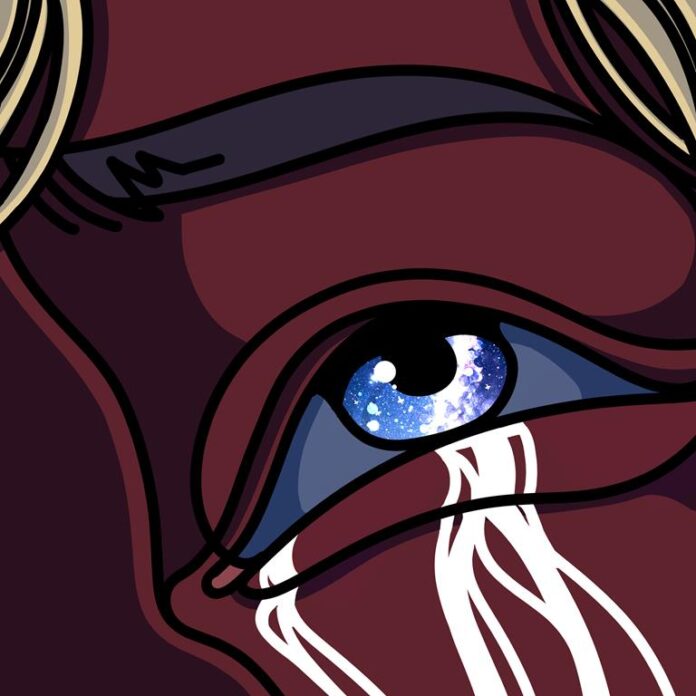“You left him out there by himself, but he wasn’t alone. There were his lifelong friends with him… the beautiful night sky and the same stars and moon that we used to see through a telescope.” As he addresses his son’s killers, Dennis Shepard’s words fill the courtroom like a fog so dense with anguish that it’s almost suffocating.
This past spring, The UFV theatre department showcased a production of Moisés Kaufman’s, The Laramie Project. Drawing directly from interviews, news reports, and documented material, the play weaves together the lived experiences of the inhabitants of Laramie, Wyoming as they grapple with the murder of 21 year old Matthew Shepard in October 1998. In collaboration with the UFV School of Creative Arts (SOCA), the Community Health and Social Innovation (CHASI) Hub sponsored a digital art competition for UFV students with a prize of $3,500 and an interview with The Cascade. Pieces reflecting on the themes of the play were submitted anonymously and the judges selected Night Sky as the winner. I asked the work’s creator, Sharon Strauss (who happens to work at CHASI as a student research assistant) what inspired her.
“I was reading the description of what his face looked like when the passerby found him that morning… how his face was just completely stained with blood and only showing the skin where his tears had washed away the blood. It is very painful, striking imagery.” As visceral as that image is, Strauss didn’t want pain to be the only emotion her work conveyed. Instead, she elicits a deep, mourningful sorrow, partially informed by her compassion for those who face death alone. The reality of so many who depart this world in isolation; homeless, ostracized from their families, victims of violence, and countless other reasons, is something Strauss wishes was just “a sad piece of history, not a current, lived fear.”
Strauss reflected on the difficulty in balancing the loss of a life against the good that can come out of tragedy. “[Matthew] was a person like anyone else and he deserves just as much to be here right now.” She considered that while “a lot of changes came because of the trial and the media surrounding what happened, and The Laramie Project itself, I imagine given the choice, he would have preferred to just keep living his life, being open, finding love, being with his friends and family… he shouldn’t have had to die for changes to happen.” And yet, change did come.
At the time of his murder, Matthew’s homosexuality and the savagery of his assault met with an emerging 24-hour news cycle and expanding internet. It focused a spotlight so bright that it illuminated the veiled bigotry hiding in many people’s hearts. “Matt’s beating, hospitalization, and funeral focused worldwide attention on hate,” said Dennis Shepard. “Good is coming out of evil. People have said enough is enough.” Judy and Dennis Shepard also started the Matthew Shepard Foundation in December 1998 which has worked to build a more caring and compassionate world for all people, in part, through lobbying and legislation. In October 2009, President Obama signed the Matthew Shepard and James Byrd Jr. Hate Crimes Prevention Act into law.
I asked Strauss, who is 28, if she had any prior knowledge of Shepard or his story. “I am bisexual myself and I’m involved in online gay communities and friend groups, but I had never heard of [Matthew Shepard] until now. This was a huge tragedy, and it was a really big moment in the history of gay rights and yet I didn’t know about it… I think there’s a lot of queer history that’s just either lost or just not talked about unless it’s sought after.” Some of this is certainly a result of a culture that is swimming in more information than it can handle, but it’s also a common phenomenon. Younger generations are often oblivious to the hard-fought victories of their elders — that is, after all, the objective. In identifying and addressing societal ills, we can leave a better world for our children. The gains achieved in the wake of Matthew Shepard’s death have diminished the need for him to continue to be a household name, but it doesn’t reduce his significance.
Informally, history is the stewardship of our collective story that we pass on to future generations. It takes many forms, from oral traditions, to academic institutions. The Laramie Project, through chronicling and performance, preserves Matthew’s story — with Night Sky, Strauss has added her link to that chain. Someone will learn Matthew’s story, and his legacy, through her art.
Tied to that fence, “breathing in the scent of the pine trees from the snowy range,” Matthew Shepard gazed at the infinite Wyoming starfield. It takes time for photons to traverse the galactic expanse. Many of the stars that glimmer in the heavens perished eons ago, and yet their luminance remains for us to see. Though gone, their radiance persists across time and space, illuminating the darkness — a speck of light to guide us.
Long ago, when DeLoreans roamed the earth, Brad was born. In accordance with the times, he was raised in the wild every afternoon and weekend until dusk, never becoming so feral that he neglected to rewind his VHS rentals. His historical focus has assured him that civilization peaked with The Simpsons in the mid 90s. When not disappointing his parents, Brad spends his time with his dogs, regretting he didn’t learn typing in high school.



